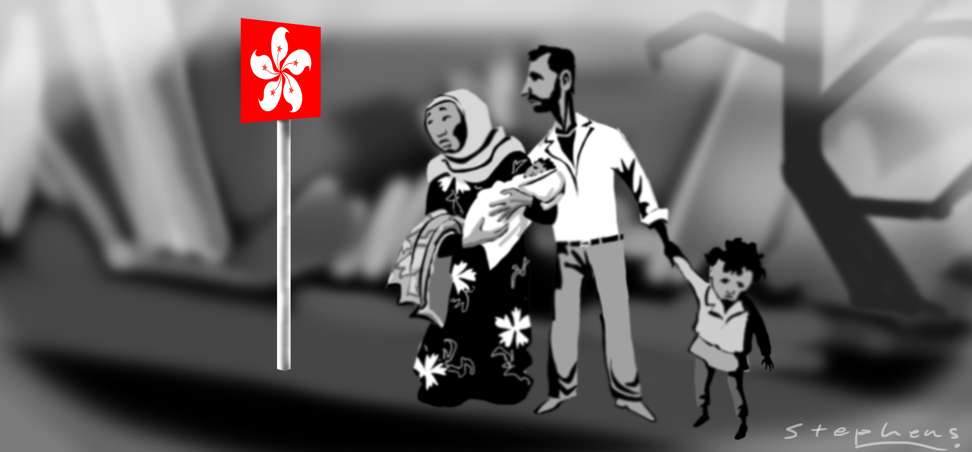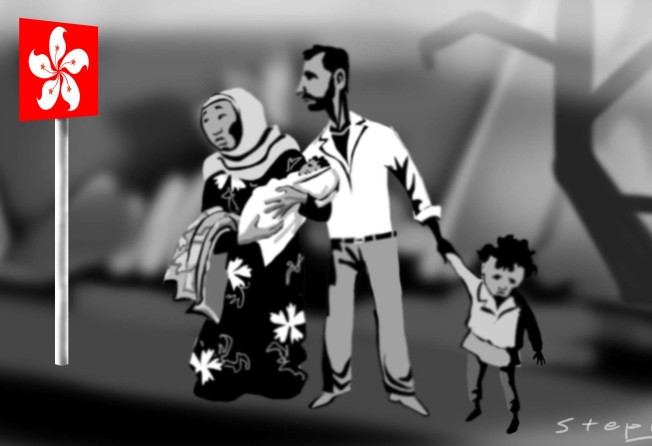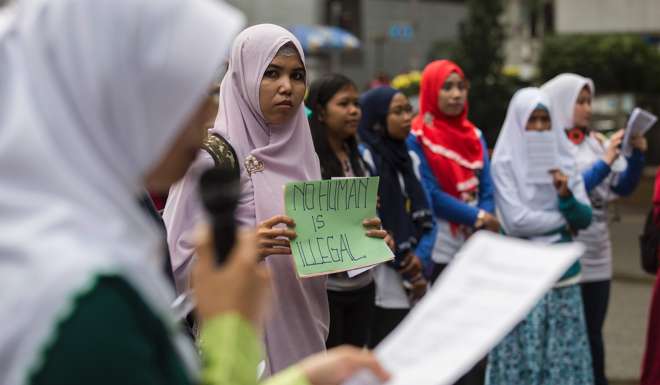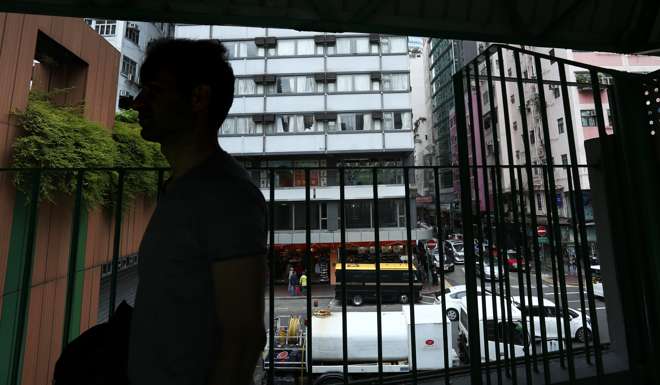
Hong Kong’s recognition of refugee status is no guarantee of protection for those who need it
Victoria Wisniewski Otero says while a welcome development, the city’s landmark recognition of a Syrian refugee also points to flaws in the system, which often leaves verified asylum seekers stuck in limbo


It is a reminder that we must confront the reality that Hong Kong receives requests for help from people in genuine need of asylum, and it has an international responsibility to heed these calls. It is also a gesture of solidarity, at a time when the US has turned its back on Syrians. President Donald Trump’s first weeks in office unequivocally show the world that he has no space in his heart for refugees; I only hope that the international community does not follow his behaviour. Indeed, the world’s refugees need our support now more than ever.
Watch: Trump defends travel ban as ‘common sense’
Trump’s indefinite ban on entry for Syrian refugees and his 120-day ban for all other refugees have been halted by the courts and an appeal is pending. But it has already caused irreparable harm. His wilful ignorance of international legal norms and humanitarian principles – which forced German Chancellor Angela Merkel to explain to him over the phone the 1951 Refugee Convention – betrays American values and belittles its stature in the world. His casual labelling of resettlement negotiations with Australia as a “dumb deal” is an insult to the suffering of the detained men, women and children left to languish on Nauru and Manus Island.
Do you believe it? The Obama Administration agreed to take thousands of illegal immigrants from Australia. Why? I will study this dumb deal!
— Donald J. Trump (@realDonaldTrump) February 2, 2017
Hong Kong’s decision is heartening, but it is only the first step. For, what is refugee status without residence or resettlement? Refugees who have been granted recognition in Hong Kong cannot be returned to a place where their life will be at risk. Yet they are denied legal residence here, or even any legal status that distinguishes them from “illegal overstayers”, as Hong Kong is one of the few wealthy jurisdictions in the world that is not bound by the refugee convention. Recognised refugees must wait to be resettled in a third country.
Hong Kong must no longer skirt around the issue of resettlement and durable solutions
As someone who has worked with and for refugees for the past four years, I see a common arc to a refugee’s journey, even though each person’s story is unique. There would be the initial relief of being out of danger and gratitude towards Hong Kong people for their assistance. Then culture shock would set in, so would loneliness, and the dread of having to recount their traumatic experiences for their legal claim. Disbelief and disappointment would follow, when the reality sets in that they have no legal status and are not allowed to work; then guilt over their past choices, and deep frustration and helplessness about their claim dragging on.
A positive refugee recognition would bring a wave of elation, gratitude for the hardworking lawyers who helped them, and renewed positivity with the promise of resettlement. Only some of the 72 recognised refugees from 2009 to December last year have been resettled, and most have gone to the US or Canada. The round of vetting by the receiving country sometimes took years, or it never came at all. With the direction the current US administration is taking, that portal may be rapidly closing.

Recognised refugees may be referred to the UNHCR in Hong Kong for resettlement. However, not all claims fall within the mandate of the UN agency, and while an application may be put to a third country, there is never a guarantee of resettlement.
Clearly, relying on the US as a country of resettlement will become untenable, and the Hong Kong government – like other societies in the region – must have a contingency strategy.
It is a positive sign that under the unified screening mechanism, more and more refugees from a wider pool of countries of origin are being recognised. So far, refugees from more than a dozen countries have been verified. It shows that there are civil servants in the Immigration Department and other government agencies who want to do the right thing, to help people in need, and who take pride in their work.
Apart from Hong Kong, we have also seen rapid evolution in the domestic refugee frameworks in our East Asian neighbours, such as Japan, Korea and Taiwan, in terms of introducing national legislation and resettlement schemes. However, these emerging protection systems are not improving quickly enough to meet the challenges of our time.

In Hong Kong, refugees wait a long time for their chance to start life anew. This interminable limbo makes it impossible for them to dream, plan and feel complete as a human being. It robs them of their identity, dignity and future; and it robs us of a more multicultural and open society.
Hong Kong must no longer skirt around the issue of resettlement and durable solutions.
As the government seeks to conduct a “comprehensive” review and make the unified screening mechanism statutory, the administration cannot omit the core element of protection from its discussions. It is so vital for refugees to have a home.
Refugees deserve to be helped, to be heard and listened to, to not be “forgotten people”. The most insidious borders are of the heart and mind – those that dehumanise the vulnerable and ultimately divide and degrade all of us as members of the human family. I am heartened by the resistance and mobilisation of people around the globe in reaction to the politics of fear; they are brave in their solidarity. Let’s keep the momentum going.
Victoria Wisniewski Otero is a human rights advocate based in Hong Kong. She is chair of the East Asia working group of the Asia Pacific Refugee Rights Network and was formerly advocacy and campaigns manager at Justice Centre Hong Kong